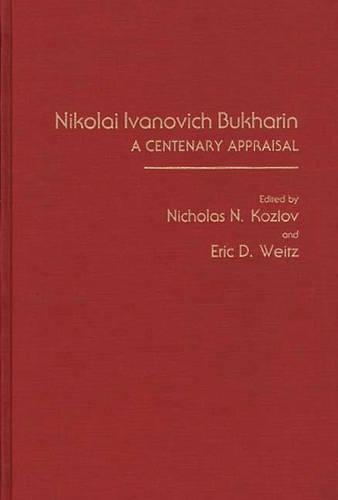
Nikolai Ivanovich Bukharin: A Centenary Appraisal
(Hardback)
Publishing Details
Nikolai Ivanovich Bukharin: A Centenary Appraisal
By (Author) Nicholas Kozlov
By (author) Eric D. Weitz
Bloomsbury Publishing PLC
Praeger Publishers Inc
26th March 1990
United States
Classifications
Tertiary Education
Non Fiction
Biography: historical, political and military
947.0840092
Physical Properties
Hardback
192
Description
Both the Russian and Western press now recognize the importance of Nikolai Ivanovich Bukharin as a Soviet historical figure. Fifty years after his execution in Stalinist Russia, Bukharin has been rehabilated by the Communist Party and invoked as the intellectual antocedent of Gorbachev. Challenging this view, contributors to this volume reevaluate the intellectual and political legacy of this Bolshevik revolutionary. They cover aspects of his thoughts and activities previously left unexpolred or misinterpreted. They conclude that Bukharin's legacy is easily distorted when he "is torn from his own political and historical context and appropriated and contemporary political movements". Contributors to this Centenary Appraisal reexamine issues central to Bukharin's intellectual and political legacy: the social, economic, and politicak forms needed for transition from capitalism to socialism; the nature of the modern capitalist state; and the meaning of imperialism as a stage in the development of capitalist world economy. Also covered are hisactivities in the Communist International and his work in the history, philosophy, and politics of science.
Author Bio
NICHOLAS N. KOZLOV is a Ph.D. economist living in Sacramento, California. He specializes in comparative economic systems and Soviet economics, and has published in the Review of Radical Political Economics, the Journal of Contemporary History, and a collection of essays edited by Richard W. England, Economic Processes and Political Conflicts. ERIC D. WEITZ is an Assistant Professor of History at St. Olaf College. He has written articles on German labor and social history that have appeared in the Journal of Modern History, Labor History, and Social Science History, and is at work on a book, From Social Democracy to Communism: The Emergence of Working-Class Radicalism in Germany, 1890-1933.
